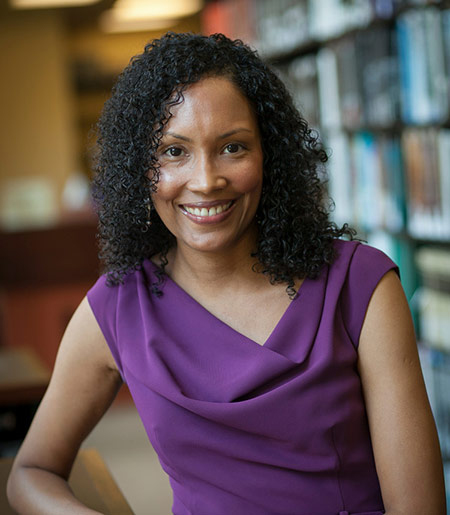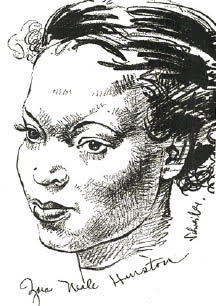Scholars, artists convene to discuss black girls, women
By Daniel Aloi

In politics and activism, popular culture and social media, “black girls and women are hyper-visible,” according to associate professor of Africana studies Oneka LaBennett. They are portrayed “as ‘at risk’ and as cultural trendsetters, yet simultaneously rendered invisible in public policy discourses.”
LaBennett has organized an interdisciplinary symposium, “On/By Black Women/Black Girls,” April 21-22 at the Africana Studies and Research Center, to explore issues related to these two categories of identity – including questions related to black feminism, coming of age and racialized gender violence – across the United States and the African diaspora.
There has been “a growing attention to black girlhood” over the past few years, with national conferences and movements such as Black Lives Matter, and the subject has formed the basis for recent innovative work in the social sciences and the humanities, LaBennett said. In March, she participated in the History of Black Girlhood Network’s first national conference.
“Calling a woman a ‘girl’ may be a term of endearment from within the community or may be a dismissal if it is delivered from without. I’m really interested in troubling those categories and putting them in dialogue with one another,” she said.
Sponsored by Cornell’s Minority, Indigenous and Third World Studies Research Group and co-sponsored by the Africana Center, the symposium aims to bridge academic/public divides, amplify the voices of black girls and women, and foster a dialogue and networking among scholars, artists, activists and youth. With a diasporic scope, covering the U.S., the Caribbean and Africa, it also recognizes queer and trans identities as central to the conversation.
“One of the things that interests me as a scholar is how are the lived experiences of girlhood and womanhood, those two stages in the life cycle and categories of identification, conceptualized?” she said.
LaBennett planned the symposium over the last year with Judith Byfield, associate professor of history, and Samantha Sheppard, assistant professor of cinema and media studies. The work of emerging scholars and Cornell graduate students Emma Kioko (English), Afifa Ltifi (Africana studies) and Sasha Phyars-Burgess (fine arts) is highlighted. “They’ve been part of this yearlong conversation,” LaBennett said.
Naminata Diabate, assistant professor of comparative literature, also is among the presenters. The two-day event features a reading by poet Lyrae Van Clief-Stefanon, associate professor of English; a display of photographs by Phyars-Burgess; and two film screenings.
Beverly Guy-Sheftall, professor of women’s studies and chair of the Women’s Research and Resource Center at Spelman College, will give the symposium keynote, April 21 at 4:30 p.m.
A Q&A with Monique Campbell follows “Missing Melodie,” the short film Campbell wrote and directed when she was 17, April 21 at 1:15 p.m. Sheppard will introduce and lead a discussion at a Cornell Cinema screening of “Daughters of the Dust” April 22 at 1 p.m. in Willard Straight Theatre.

Presenters also include Aimee Meredith Cox of Fordham University; Dána-Ain Davis of Queens College, City University of New York; Abosede George of Barnard College and Columbia University; Treva Lindsey of Harvard University and Ohio State University; and Stacey Patton of Morgan State University.
LaBennett has been using an illustration of Zora Neale Hurston from a 1943 Saturday Review magazine cover to promote the event.
“I see Zora in some ways as the patron of this symposium – she was an interdisciplinary scholar, not just in literature but anthropology, and an ethnographic filmmaker and a playwright,” she said. The illustration also is “symbolic of what this symposium is trying to do.”
“It struck me as a very youthful image,” even though it appeared when Hurston was 52, LaBennett said. “When I came across that image I realized I had seen many photographs of her but never one in which she had looked so young, between her girlhood and womanhood.”
Media Contact
Get Cornell news delivered right to your inbox.
Subscribe